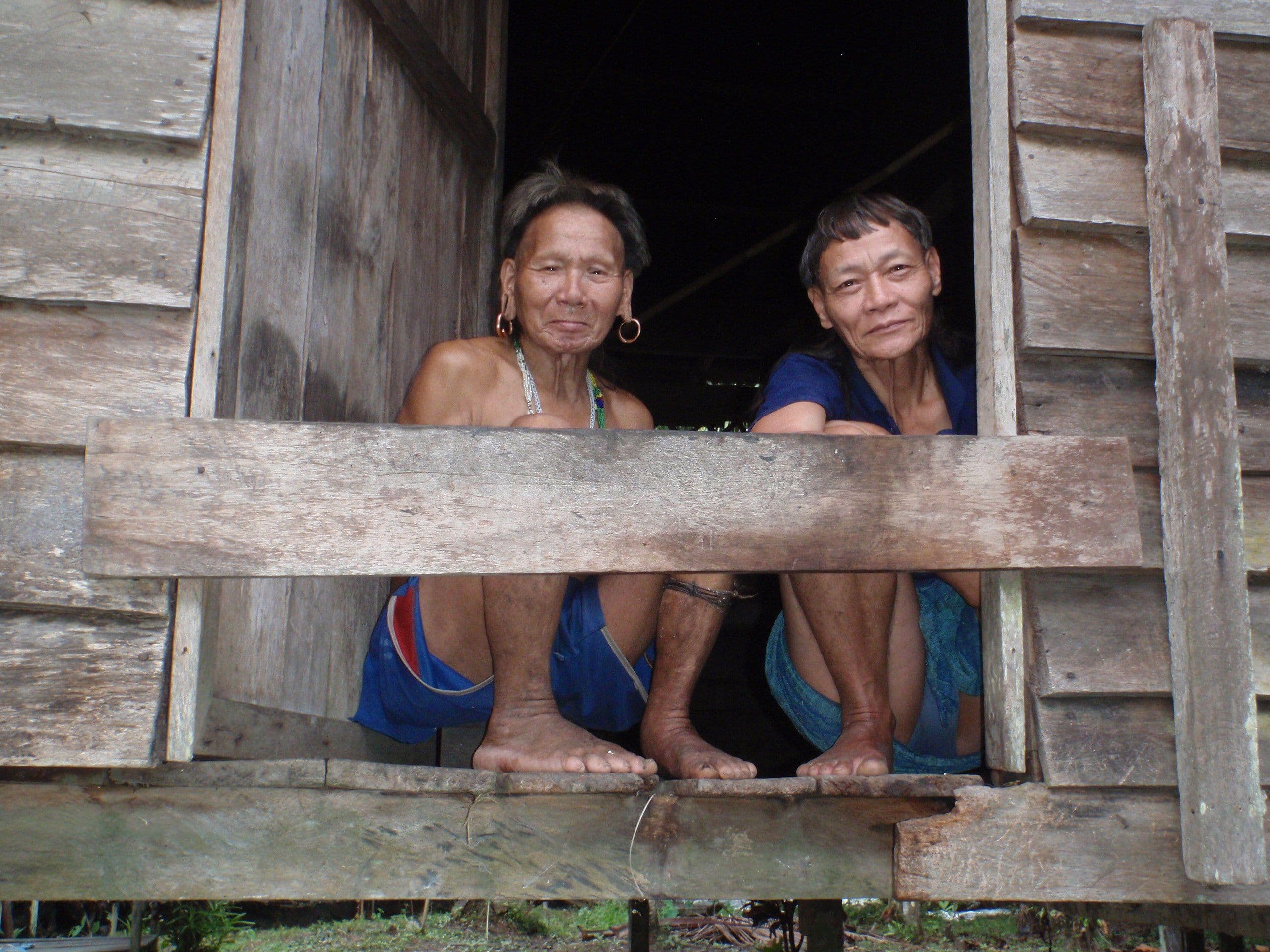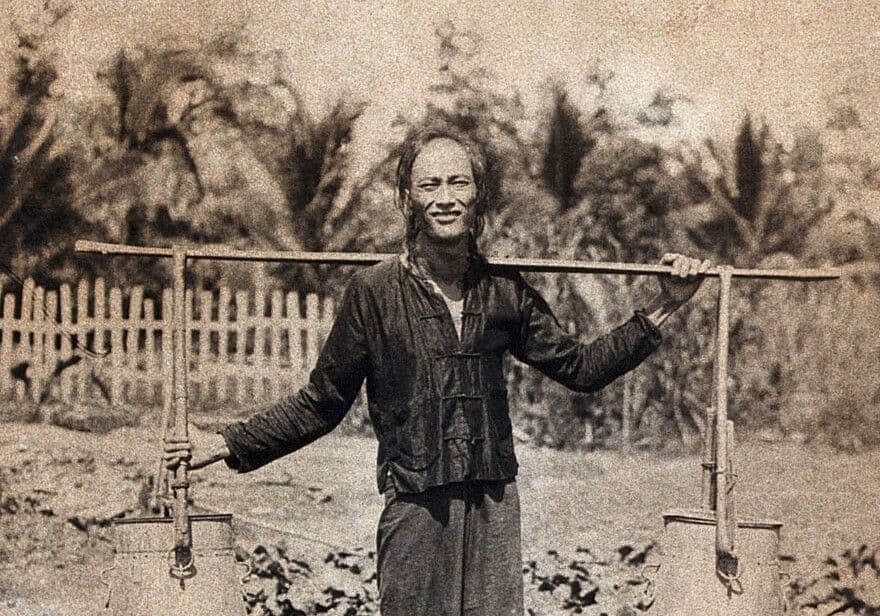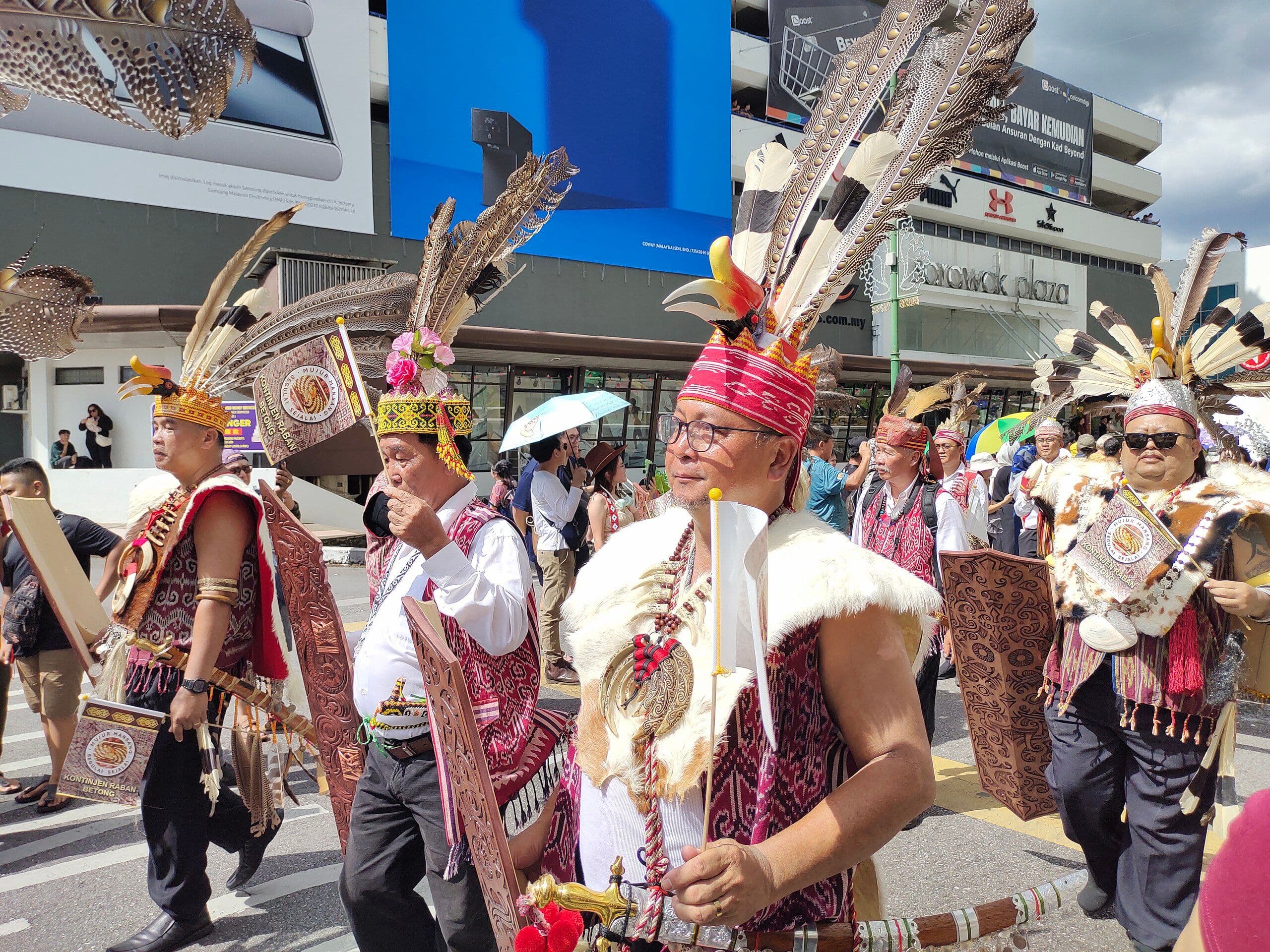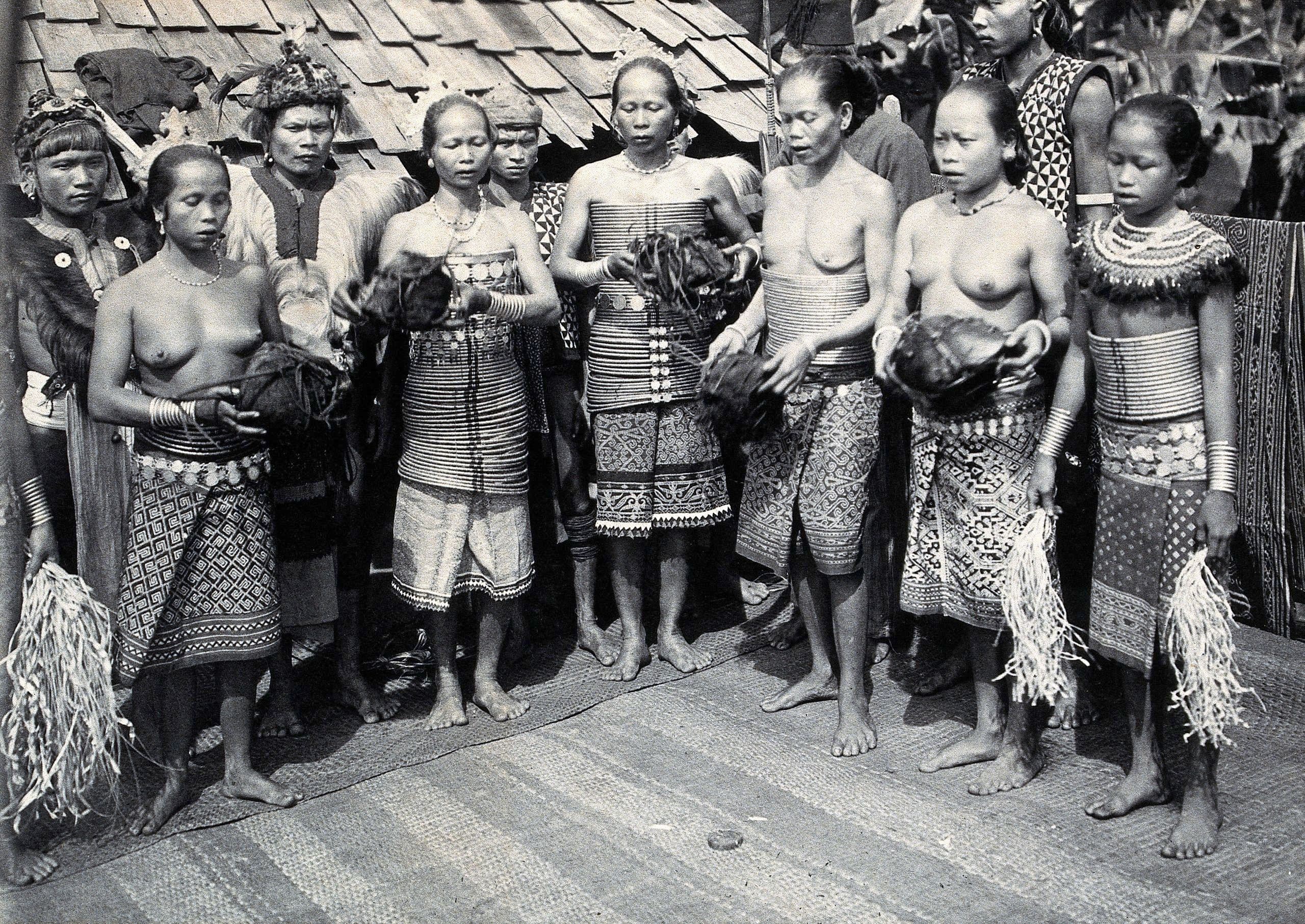The Penan People of Sarawak: History, Lifestyle, and Ongoing Struggles

Penan of Sarawak: Hunter Gatherers of the Borneo Rainforest
The Penan people, indigenous to the rainforests of Sarawak, Borneo, are one of the last nomadic hunter-gatherer groups in Southeast Asia. Their deep connection to the land has shaped their way of life for generations, but deforestation and encroachment on their territories have forced them to adapt while fighting to preserve their ancestral home. Despite modern challenges, the Penan remain resilient, rooted in a culture that revolves around the rainforest.
Resource Gathering and Cultivation




Historically, the Penan have lived as nomadic hunter-gatherers, relying on the forest to meet their basic needs. They are skilled hunters, using blowpipes called kelepud, which are carved from belian wood (ironwood), along with poisonous darts made from the sago palm and tajem latex. This efficient weaponry allows them to hunt animals like boar, deer, frogs, squirrels, and monitor lizards.

Sago palm is a staple of the Penan diet, providing them with a carbohydrate-rich starch extracted from its pulp. It offers a swift, reliable food source compared to rice, which takes much longer to cultivate. One Penan emphasized this, saying:
"Growing rice takes a long time. But with sago, we only need to cut it down, and we can eat it the same day."
To process sago, the Penan use a distinctive bamboo mallet with a short handle and a long head to smash the inside of the palm, making it easier to extract the pulp. This simple yet efficient tool is a key element of their daily life, reflecting their ingenuity and deep understanding of the forest’s resources.
While sago remains central to their diet, newer generations have begun adopting agriculture, growing rice and vegetables. The cultivation of rice was introduced to the Penan by missionaries, and neighboring indigenous tribes. However, even with these new agricultural practices, the Penan still heavily rely on the bounty of the forest for their sustenance.
Deforestation and Resistance

The Penan have long faced the destruction of their homeland due to large-scale logging operations that began around the 1960s or 1980s. These operations, often granted to political and business elites, led to deforestation across Sarawak. The loss of the rainforest has had devastating effects on the Penan people. Water sources were polluted, sago palms were destroyed, wild game became scarce, traditional medicinal plants disappeared, and rattan became rare.
Unga Paren, headman of the Long Bangan community, expressed the sorrow many Penan feel:
"They may see us as poor, but we are not poor in terms of food because the rainforest provides – the rainforest is our wealth. They came in promising development, and by comparison, we are poorer. We are poorer now because our rainforest is gone."
Legal Rights
Without official land ownership documents, the Penan have struggled to defend their ancestral territories. Historically, the government required indigenous people to prove land ownership dating back to before 1958. It was not until 2011 that the Penan’s rights to their land were formally acknowledged for the first time, largely due to the efforts of the Bruno Manser Foundation and community leaders like Komeok Joe, who has spent nearly three decades fighting for Penan land rights.
"I’ve been working for the rights of the Penan for 28 years. After the Second World War, the Penan started seeing encroachment into our territories. That is when our struggle started. We are not against any development from the government; we want that development, but we have to choose."
New Challenges for Ownership
Due to their way of life, Penan who fight for their rights to the forest are often at a disadvantage as they lack the legal documents to prove land ownership. One of the basic necessities is a Malaysian identity card, which many Penan do not possess because of their nomadic lifestyle. They also have limited access to hospitals. Births that take place in the forest are referred to as "Tong Tanah," which roughly translates to "fell from the mother's womb to the forest floor."
Culture and Religious Influences
The Penan originally practiced animism, a belief system in which natural elements and animals possess spiritual significance. However, over time, many Penan have transitioned to Christianity, largely due to the efforts of local & international missionaries.
Despite these changes, the Penan have preserved many aspects of their cultural heritage. One such tradition is seperut or separut, a ceremony held to honor the animals they hunt. This ritual reflects the deep respect the Penan have for the forest and its creatures, acknowledging their role in the community’s survival.
The Future of the Penans: Education at the Forefront of Breakthrough
Education stands as a beacon of hope for the Penan people, offering a pathway to empowerment and a stronger voice in their fight for rights and justice. For the Penan, whose traditional knowledge and skills have sustained them for generations, integrating formal education can be transformative. It equips individuals with the tools to advocate effectively, navigate legal systems, and engage with broader socio-economic opportunities.
Historically, the Penan have relied on their deep connection with the forest, such as crafting rattan products for trade. While this traditional knowledge is invaluable, education introduces new avenues for economic development and cultural preservation. By acquiring skills and knowledge through formal education, the Penan can explore diverse career paths and entrepreneurial ventures, moving beyond traditional trade and enhancing their economic stability.
The role of elders and younger generations is crucial in this transformation. Elders, who hold the wisdom of tradition and history, are instrumental in recognizing the value of education and supporting its integration into Penan communities. Their endorsement and encouragement can bridge the gap between traditional practices and modern education, ensuring that cultural values are respected while embracing new opportunities.
For the younger generation, education offers a platform to amplify their voices and advocate for their rights more effectively. Equipped with knowledge and skills, they can engage with legal frameworks, participate in political processes, and drive initiatives that address their community’s needs
Where to Begin: How to Make a Difference
One of the most impactful ways to support the Penan community in their quest for education and empowerment is by contributing to charitable organizations dedicated to this cause. These organizations are at the forefront of efforts to provide Penan children with access to quality education, which is crucial for their future and the preservation of their culture.
For instance, organizations like the HHPenan Foundation work tirelessly to raise funds and allocate resources specifically for educational initiatives. By supporting such organizations, you contribute directly to programs that fund schooling, provide educational materials, and offer scholarships to Penan children. This financial support helps overcome barriers such as lack of infrastructure, resources, and educational opportunities. To learn more visit Helping Hands About Page
Frequently Asked Questions
Do the Penans still practice the nomadic hunter-gatherer life?
Despite the pressure to acclimate to the modern era, an approximate of 200 Penans continue to live the nomadic lifestyle. Whereas others have transitioned farming - cultivating rice and vegetables.
What impact has deforestation had on the Penan people?
Deforestation has severely affected the Penan by destroying their rainforest habitat. This has led to the loss of essential resources such as water, sago palms, wild game, and medicinal plants, disrupting their traditional way of life and access to vital resources.
How can I help the Penan Tribe get education?
Through helping hands Penan - https://helpinghandspenan.com/
What legal challenges do the Penan face regarding their land?
The Penan have struggled with securing legal ownership of their ancestral lands due to a lack of official documentation. Although their land rights were formally recognized in 2011, many still face difficulties because of their nomadic lifestyle and lack of legal documents like Malaysian identity cards.
How does limited access to services affect the Penan?
Limited access to essential services such as healthcare and education is a significant challenge for the Penan. Their nomadic lifestyle and lack of formal documentation often hinder their ability to access hospitals and other critical services.
What economic pressures are the Penan experiencing?
The Penan face economic pressures due to the loss of their traditional land and the challenges of maintaining a self-sufficient lifestyle. Integrating formal education and finding new economic opportunities are crucial for their future, but these changes come with their own set of difficulties.
References & Accreditation
- "Wild Hill Sago (Eugeissona utilis)" by Bernard Dupont from France is licensed under CC BY-SA 2.0. Image source: Wikimedia Commons.
- "Antiaris toxicaria Brahmagiri" by Ajtjohnsingh is licensed under CC BY-SA 4.0.
- "Eusideroxylon zwageri - Bukit Nanas Forest Reserve - Kuala Lumpur" by Patrice78500 is in the public domain.
- "Pohon Ulin (Eusideroxylon zwageri) di Kebun Raya Balikpapan, Hutan Lindung Sungai Wain" by Hertafuimycena is licensed under the Creative Commons Attribution-Share Alike 4.0 International license.
- Source: "Penan people." Wikipedia, The Free Encyclopedia. Available under the Creative Commons Attribution-ShareAlike License 4.0. Wikipedia® is a registered trademark of the Wikimedia Foundation, Inc., a non-profit organization
- "Sungai Tuoh near Mulu NP" by Bernard Dupont licensed under Attribution-ShareAlike (CC BY-SA 2.0)
Leave a Comment
Please log in to leave a comment.
All Comments
No comments yet.


